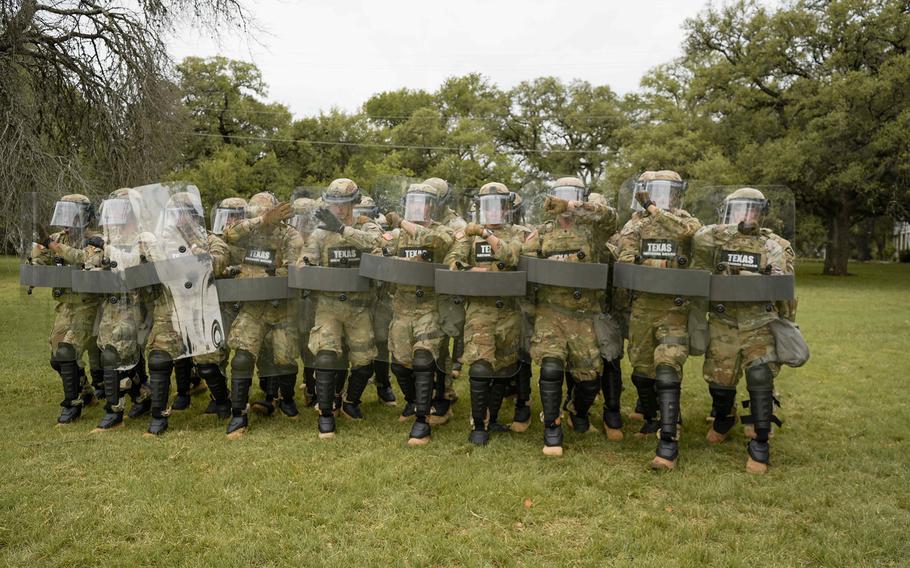
Texas is among 20 states where the Defense Department has requested the governor provide National Guard troops to help support Immigration and Customs Enforcement detention facilities. (Texas Military Department)
Hundreds of Marines slated to work with Immigration and Customs Enforcement were called off the mission after Pentagon officials determined the work required close contact with detained migrants.
Instead, the governors of 20 states are being asked to provide up to 1,700 National Guard troops to work within that state conducting case management, logistics and clerical work in ICE detention facilities, according to the National Guard Bureau. The July 25 memo for the mission, which keeps troops on a state mission but with federal funding, requires troops receive at least 30 days of notice to deploy.
Roughly 200 Marines deployed July 3 from Marine Corps Air Station New River in North Carolina to Florida to work in support of an ICE mission, according to U.S. Northern Command. Another 500 Marines, National Guard and Reserve troops were authorized to join them doing similar work in Texas and Louisiana.
At the time of the announcement, NORTHCOM did not provide information on what troops would be doing. Officials only stated it would not be law enforcement work, and troops were prohibited from direct contact with detained people.
The Defense Department reversed course and sent the Marines and some personnel from the Navy Reserve back to their home stations because the work did require contact with ICE detainees, Sean Parnell, chief spokesman for the Pentagon, said in the memo.
The efforts of National Guard troops could include transporting and processing migrants in and out of facilities, according to a defense official who spoke on condition of anonymity. Processing might include personal data collection, fingerprinting, DNA swabbing, photographing people in ICE custody, and adding biographical and detention data into Department of Homeland Security systems.
The number of troops and the exact work that they will do in each state will be determined through an agreement between the state’s governor and local ICE officials, according to the National Guard Bureau.
“By providing these crucial services, DOD military personnel directly enable ICE to dedicate more trained agents to core law enforcement activities, significantly enhancing overall effectiveness,” Parnell said in a statement.
States requested to support ICE detention facilities are Alabama, Arkansas, Florida, Georgia, Idaho, Indiana, Iowa, Louisiana, Missouri, Nebraska, Nevada, Ohio, South Carolina, South Dakota, Tennessee, Texas, Utah, Vermont, Virginia and Wyoming, according to the National Guard Bureau.
Each state has a Republican governor, though Vermont Gov. Phil Scott declined the mission, according to an interview that he did with NBC5 in Burlington. A dozen Vermont Guard members were requested primarily for clerical work, Scott said in the interview.
He said he did not believe the need required the National Guard and recommended the federal government find the support in its own workforce, including those who have left or been fired from their jobs in the last several months.